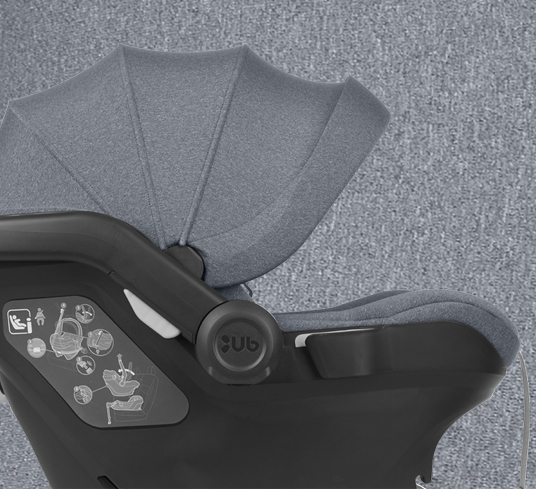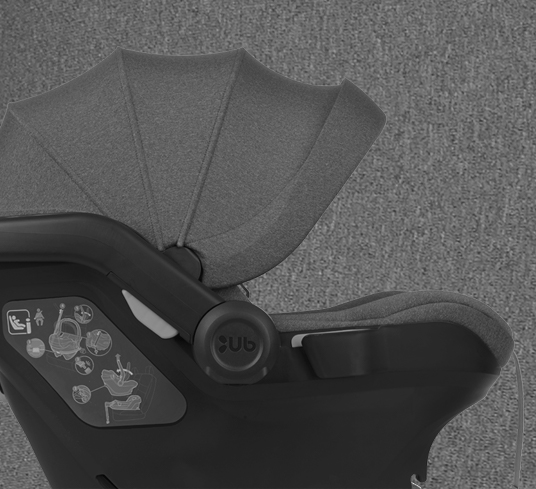
Zobacz, jakie to proste®
Przemyślana konstrukcja to klucz do prawidłowej instalacji zarówno pierwszego, jak i każdego kolejnego dnia. Fotelik samochodowy dla niemowląt Mesa i-Size spełnia normę R129 i wyposażony jest w innowacyjne funkcje, dzięki którym jego instalacja jest łatwa i intuicyjna.
Dobry wygląd, który działa
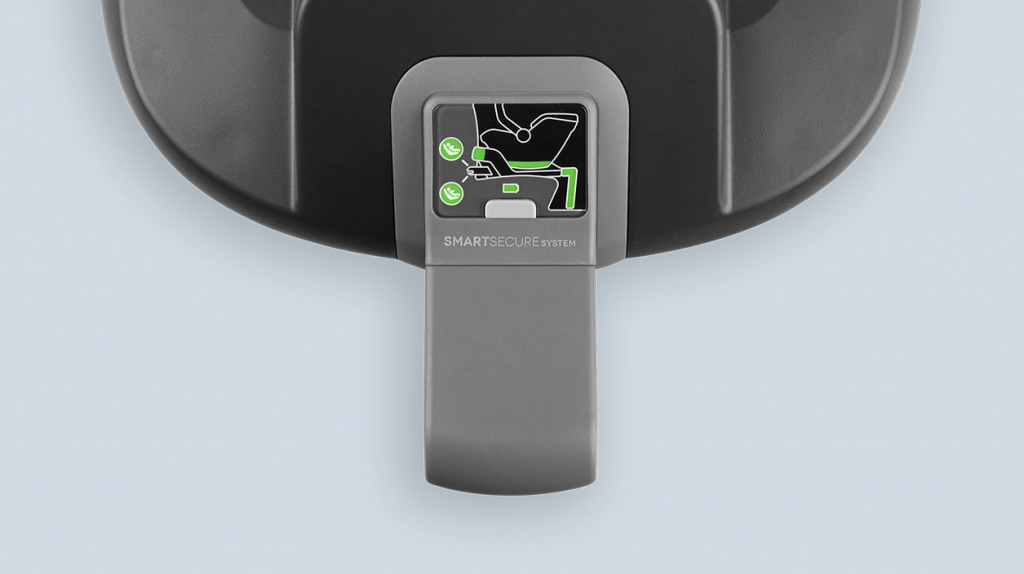
SYSTEM SMARTSECURE®
Elektroniczny panel wskaźników potwierdzający właściwą instalację wizualnie i dźwiękowo gwarantuje, że fotelik Mesa i-Size będzie prawidłowo zamontowany za każdym razem. System SMARTSECURE™ został wyposażony w unikalny wskaźnik nacisku, który pozwala uniknąć nieprawidłowego zamocowania bazy i pomaga w optymalnym ustawieniu fotelika na siedzeniu.
Fotelik Mesa i-Size pasuje do pozycji i-SIZE w samochodzie. Więcej informacji na temat dopasowania do różnych samochodów znajduje się w naszym Przewodniku mocowań samochodowych.
Łatwa instalacja
System ISOfix pozwala odpiąć bazę jednym ruchem i ułatwia jej prawidłowe zamocowanie.


Zaawansowana ochrona przed uderzeniami bocznymi
Aby zapewnić lepszą ochronę głowy, karku i całego ciała, a także ochronę przed uderzeniami bocznymi, zagłówek fotelika Mesa i-Size wykorzystuje właściwości pochłaniania wstrząsów i zapamiętywania kształtu pianki termoelastycznej i z tworzywa EPP.
Chowany daszek z filtrem UPF 25+
Bardzo duży, wbudowany i rozkładany daszek zapewnia większą ochronę na zewnątrz i można go łatwo złożyć, gdy nie jest potrzebny.
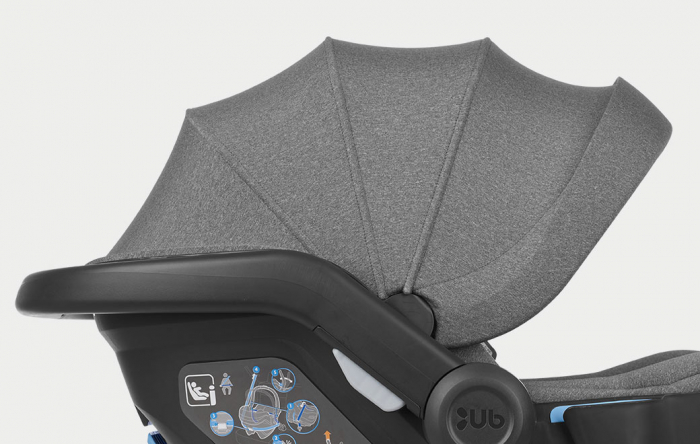

Zagłówek z regulacją wysokości i zintegrowany system pasów
Regulowany zagłówek fotelika Mesa i-Size zintegrowany jest z wyjątkowym, trzypunktowym systemem regulacji pasów, dzięki czemu nie ma konieczności rozkładania całej konstrukcji wraz z rośnięciem dziecka. Całość zapewnia idealne dopasowanie oraz bezpieczeństwo niemowlęcia.
Dołączona wytrzymała wkładka dla niemowlęcia
Wyjmowana wkładka dla niemowlęcia do 60 cm wzrostu zapewnia właściwą pozycję dziecka w foteliku oraz lepszy przepływ powietrza.


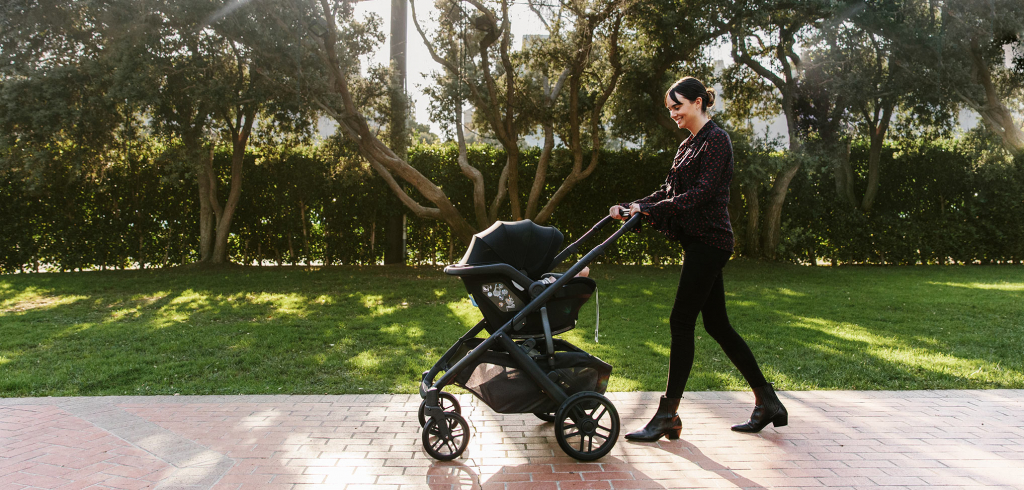
SYSTEM PODRÓŻOWANIA
Fotelik Mesa i-Size można bezpośrednio połączyć z wózkami Vista i Cruz, co zapewnia jego maksymalną mobilność i bezpieczeństwo. Dzięki wygodnym w obsłudze adapterom jest również kompatybilny z modelem Minu.


Naciśnięcie przycisku na górze uchwytu fotelika pozwala odczepić go od wózka. Podczas spaceru dziecko w foteliku Mesa i-Size może być zwrócone twarzą do Ciebie, a na czas posiłku możesz łatwo odwrócić fotelik do stołu, aby uchwyt nie przeszkadzał.
Nasza gwarancja
UPPAbaby oferuje OGRANICZONĄ DOŻYWOTNIĄ GWARANCJĘ na wszystkie foteliki samochodowe, co stanowi wyrażenie naszego nieustannego zaangażowania w zapewnianie bezpieczeństwa małym pasażerom.

Specyfikacja
Odpowiedni do wzrostu 40–78 cm, od urodzenia do ok. 14 miesięcy
Dołączona wkładka dla niemowlęcia zalecana jest dla dzieci poniżej 60 cm wzrostu (ok. 3 miesiące)
Wiek w przybliżeniu: od urodzenia do około 14 miesięcy
Waga nosidełka: 4,3 kg (4,6 kg z wkładką dla niemowląt)
Zwrócony tyłem do kierunku jazdy: 40–78 cm, poniżej 13 kg
Najważniejsze funkcje
Nosidełko i baza sprzedawane osobno
Nosidełko
- Wytrzymała wkładka dla niemowlęcia, zalecana dla dzieci poniżej 60 cm wzrostu
- Niewymagające przekładania pasy z zaawansowaną ochroną przed uderzeniami bocznymi
- Wbudowany system wentylacji zapewnia dziecku ochłodę i komfort
- Chowana budka z filtrem UPF zapewniająca dużą osłonę
- Bezpośrednie podłączenie do wózków Vista i Cruz, wygodne w użyciu adaptery dostępne także dla wózka Minu
- Rączka do przenoszenia z przyciskiem pozwalającym na odczepienie fotelika od wózka
Baza
- System SMARTSecure® z potwierdzeniami wizualnymi i dźwiękowymi zapewnia prawidłową instalację za każdym razem
- Jednokrotny system zwalniania ISOfix
- Wyjątkowy wskaźnik nacisku zapewnia, że baza jest prawidłowo umiejscowiona na fotelu samochodowym



